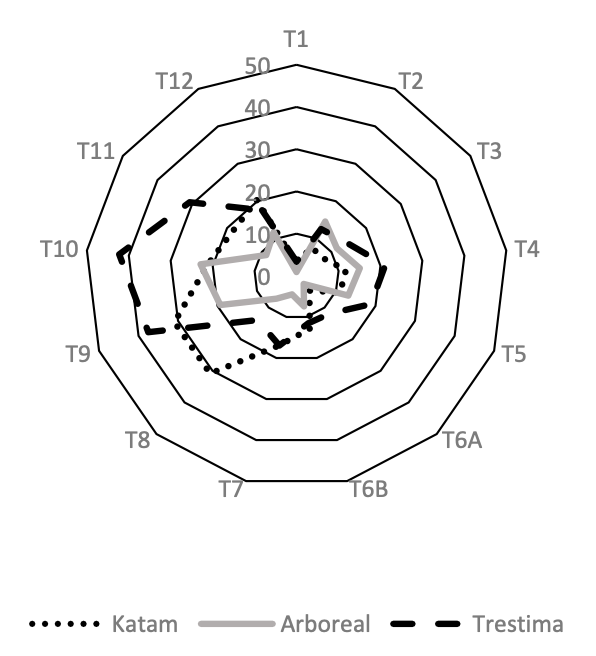
First Scientific Evaluation of Arboreal Forest, Katam, and Trestima Apps Published
Johan Ekenstedt
10 Oct 2023
The first scientific evaluation of mobile applications Arboreal Forest, Katam, and Trestima has been published in a peer-reviewed journal.
The study focused on stem count and tree diameter in forests with varying characteristics. Two tree species, Mediterranean pine and eucalyptus, were used for the evaluation. The apps demonstrated good accuracy, particularly in forests with flat terrain, older, regular stands with low understory vegetation. They were less effective in younger, irregular forests with sloping terrain and dense understory vegetation.
Among the evaluated apps, Arboreal Forest achieved the best results with a score of 15.5, followed by Katam with 12 points and Trestima with 6 points. Arboreal Forest's ability to measure both diameter and stem count with high accuracy even in areas with understory vegetation was particularly noteworthy. Additionally, it could measure tree heights.
Key findings:
-
Performance in Various Conditions: The apps performed best in flat, mature forests with minimal understory.
-
Challenging Environments: Younger forests, irregular stands, and dense understory posed challenges for all apps.
-
Arboreal Forest's Strengths:
- Highest overall score (15.5 points)
- Accurate in measuring diameter and stem count, even with understory present
- Capable of measuring tree heights
-
Comparative Results:
- Arboreal Forest: 15.5 points
- Katam: 12 points
- Trestima: 6 points
This study provides valuable insights into the capabilities and limitations of mobile forest measurement applications, highlighting Arboreal Forest's strong performance across various forest conditions.
For more detailed information, you can read the full article on the Forests website.
As forest technology continues to evolve, studies like this help foresters and researchers make informed decisions about the tools they use in the field.